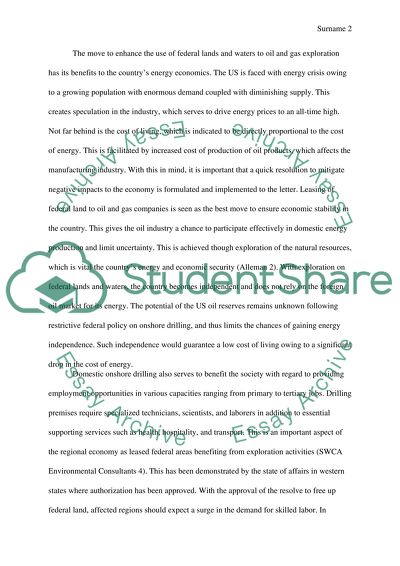Cite this document
(“Oil drilling on federal land Research Paper Example | Topics and Well Written Essays - 1500 words”, n.d.)
Retrieved from https://studentshare.org/environmental-studies/1488804-oil-drilling-on-federal-land
Retrieved from https://studentshare.org/environmental-studies/1488804-oil-drilling-on-federal-land
(Oil Drilling on Federal Land Research Paper Example | Topics and Well Written Essays - 1500 Words)
https://studentshare.org/environmental-studies/1488804-oil-drilling-on-federal-land.
https://studentshare.org/environmental-studies/1488804-oil-drilling-on-federal-land.
“Oil Drilling on Federal Land Research Paper Example | Topics and Well Written Essays - 1500 Words”, n.d. https://studentshare.org/environmental-studies/1488804-oil-drilling-on-federal-land.


